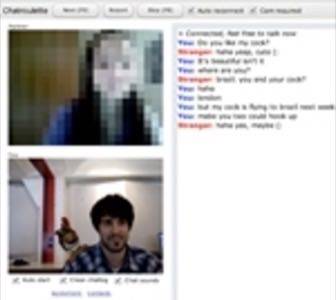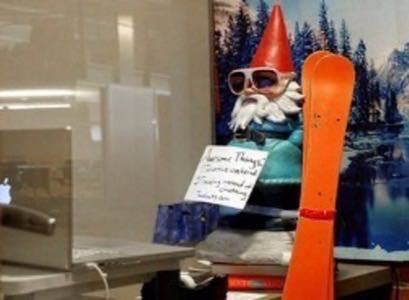What’s this? The oddball, quirky and occasionally X-rated site that connects random strangers for video chat is a marketer’s dream? That doesn’t sound right. But that’s exactly what Travelocity, the popular travel brand known best for their mascot, the travelling gnome, is saying. In a recent interview with ClickZ, a news and advice site for digital marketers, Travelocity company spokesperson Joel Frey, discussed the Chatroulette marketing campaign and its successes: 350,000 impressions and 400 conversations between potential customers and its “chat specialists.” (Yes, Travelocity pays staffers to surf Chatroulette!)

According to Frey, Chatroulette was a “natural extension” to the company’s other social media efforts taking place on Twitter and Facebook. And despite the video chat site’s notoriety for its not-so-safe-for-work component (aka: the crazies who like to disrobe or worse on camera), the site is actually a great way to advertise the brand, says Frey, because no one in the wider world will know it was ever associated with those elements, unlike on Twitter or Facebook where a negative or disturbing Wall post or tweet can be read by everyone. On Chatroulette, the chatting staffer simply clicks “next.”
The campaign uses Travelocity’s popular mascot, the gnome, who has previously shared his travels via TV commercials and more recently, on his Facebook page and Twitter account. (Travelocity also runs a number of other Twitter accounts for advertising their specials, publicizing their company blog posts, sharing news and more.)

During office hours, the gnome “surfs” Chatroulette with the help of a Travelocity chat specialist and after hours he appears alone, holding up a sign with a clever saying of some sort about how time may be better spent traveling that chatting. For example: “Traveling from person to person doesn’t count. Travelocity.com.”
Marketing on Chatroulette Worth It?
Travelocity isn’t the only marketer to hop on the Chatroulette bandwagon. Previously, we covered clothing brand French Connection’s use of the site, which involved a contest where chatters had to attempt to seduce another Chatroulette user, a more risky sort of marketing effort.
What hasn’t been known, until now at least, is how successful Chatroulette marketing would be. It wasn’t too long ago that marketers were warned to steer clear of the site, not only because of its unsavory element, but also because of the suspected lack of ROI. James Duthie, an Australian web strategist, recently warned marketers that Chatroulette fails to offer any tangible benefit. “There is next to no benefit for brands participating on Chatroulette,” he wrote on his personal blog. Brands using the site have “no [social networking] profile and therefore no crawlable links, no history and no ability to generate real web traffic.”
As it turns out (at least in Travelocity’s case), Chatroulette may not be that bad of a marketing vehicle after all. “We’ve gotten a lot of positive buzz from this that we really weren’t at all expecting,” Frey told ClickZ. “The PR alone has totally captured the ROI.”





















